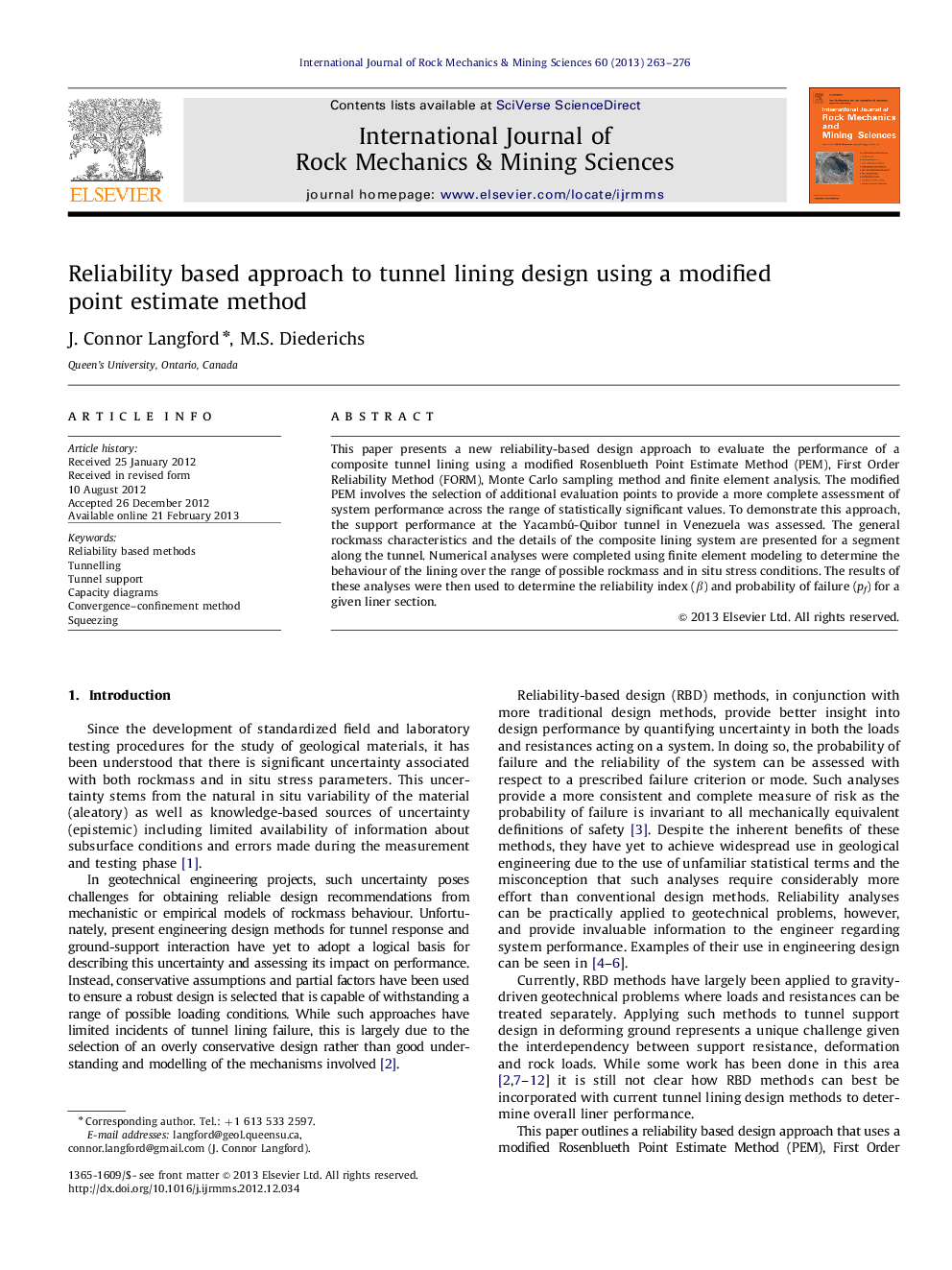| Article ID | Journal | Published Year | Pages | File Type |
|---|---|---|---|---|
| 809288 | International Journal of Rock Mechanics and Mining Sciences | 2013 | 14 Pages |
This paper presents a new reliability-based design approach to evaluate the performance of a composite tunnel lining using a modified Rosenblueth Point Estimate Method (PEM), First Order Reliability Method (FORM), Monte Carlo sampling method and finite element analysis. The modified PEM involves the selection of additional evaluation points to provide a more complete assessment of system performance across the range of statistically significant values. To demonstrate this approach, the support performance at the Yacambú-Quibor tunnel in Venezuela was assessed. The general rockmass characteristics and the details of the composite lining system are presented for a segment along the tunnel. Numerical analyses were completed using finite element modeling to determine the behaviour of the lining over the range of possible rockmass and in situ stress conditions. The results of these analyses were then used to determine the reliability index (β) and probability of failure (pf) for a given liner section.
► A new reliability based approach for tunnel lining design was proposed. ► The modified PEM allows for a more complete assessment of system performance. ► This method was used to assess system performance for a tunnel in squeezing ground. ► Addition of support decreases variability in tunnel excavation response parameters. ► Global and local probabilities of failure were consistent with site observations.
